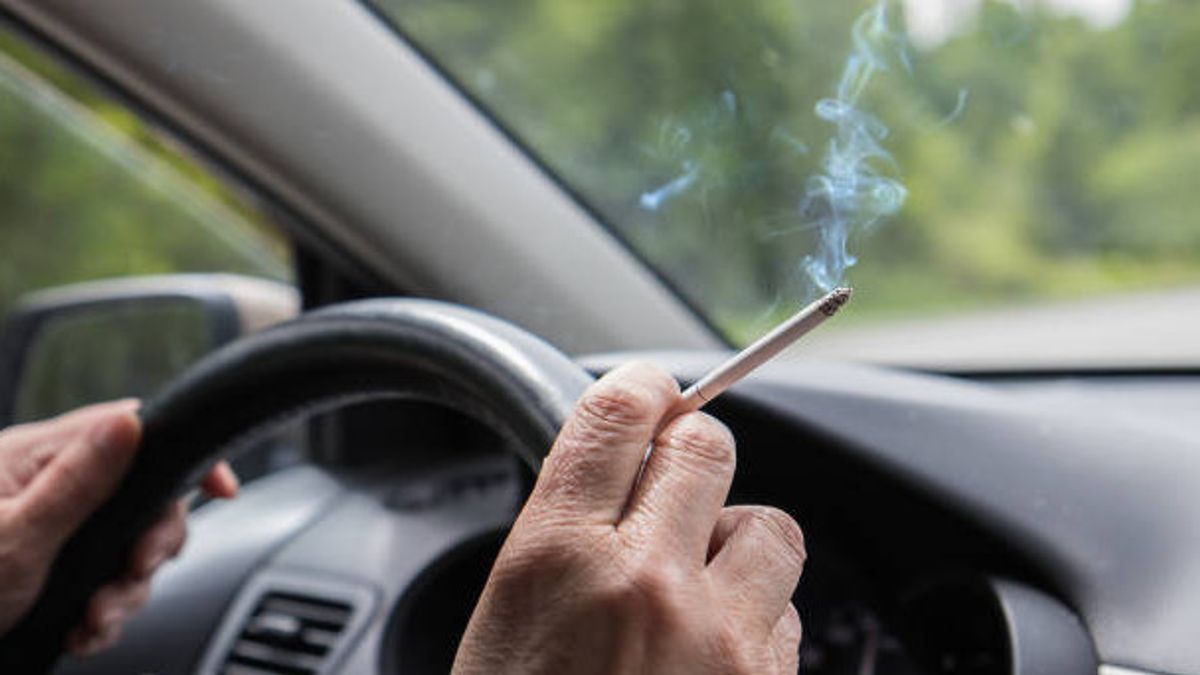Most Americans don't like antisocial behavior. Suspicious people's belongings, bending food safety rules, or smoking in large numbers tends to cause a lot of strong reactions. But if you're behind the wheel of the car, and all the disapproval tends to disappear.
That's because many of us suffer from a disease called "car brain" - even though Ian Walker, professor of environmental psychology at Swansea University in Wales, prefers to call it "motornormativity".
This is a term created by Walker and his team to describe "cultural inability to think objectively and impartially" about how we use cars.
Let's just say it's like "heteronormality", the idea that heterosexual couples are "automaticly, but inappropriately, consider everyone to be in their own category", but for cars.
Walker noticed that people tend to have a very large blind spot when it comes to certain behaviors associated with driving, whether it's speeding, carbon emissions, traffic accidents, or a large range of other negative external effects resulting from a culture serving car dives.
"One of the things you pay attention to if you spend your career trying to get people to reduce driving is that people don't like to drive less," Walker said in an interview, quoted by The Verge.
We said, well, let's try and measure this. Let's show to what extent the overall population will make excuses, will provide special freedom in the context of driving, "he said.
To achieve this, he compiled a series of statements aimed at eradicating this unconscious bias. The statements were separated into two categories: one about cars and driving and the other with keywords and phrases changed to several other activities.
The two series of statements were presented to a sample of 2,157 adults in the UK, who were then asked to agree or disagree.
For example, people are asked to agree or disagree with the following statement: "People shouldn't smoke in densely populated areas where other people have to breathe cigarette smoke." Then they were asked to respond to a parallel statement about driving: "People shouldn't drive in densely populated areas where other people have to breathe car smoke."
While three-quarters of respondents agreed with the first statement (People shouldn't smoke...), only 17 percent agreed with the second statement (People shouldn't drive...).
Another statement discusses the values surrounding the theft of personal property. Respondents were asked whether they agreed or disagreed with the statement, "If someone leaves their belongings on the road and they are stolen, it is their own fault for leaving them there and the police should not act," as well as a parallel statement, "If someone leaves his car on the road and is stolen, it is their own fault for leaving him there and the police should not act."
Only 8 percent of people disagreed with the first statement, while 55 percent of people disagreed with the second statement.
Similar results are found in questions about food and health safety, alcohol consumption, and in-work injuries. People are less tolerant of bad behavior that does not involve cars and are much more tolerant of similar behavior involving driving.
For Walker, this decision is where motornormivity plays a role. We want to show that when you talk about driving, people don't apply their normal values," he said.
The question of smoking specifically charming Walker for several reasons. For decades, people have tolerated and even encouraged smoking in public places. But then the growing awareness about the health risks of the public associated with cigarette smoke, combined with tougher government regulations, led to a shift in public perceptions. According to him, the same thing can eventually apply to driving.
"The fact that smoking has changed so much, where almost everyone we spoke to said no, it's unacceptable - the same person won't say it 20 years ago," Walker said. "So, the comparison of smoking and driving attracted my interest because it shows us where we can go in the future if people's minds start to change."
Given how rooted the culture of cars in countries around the world may take longer to change people's minds about driving than cigarettes. First, we don't tend to see driving through public health lenses, which protect most of us from thinking about the dangers and social inequality associated with the use of cars.
That's because, for most people, driving is comfort. And because it's easy, we tend to think of it as part of the natural order to drive. That's why there's so much hostility around cycling and alternative forms of transportation: because, for a lot of people, it challenges the natural order of driving.
"People don't just do what the world thinks is easy, but because it feels easy, people conclude that it's true," Walker said. This report is quoted from The Verge.
The English, Chinese, Japanese, Arabic, and French versions are automatically generated by the AI. So there may still be inaccuracies in translating, please always see Indonesian as our main language. (system supported by DigitalSiber.id)













